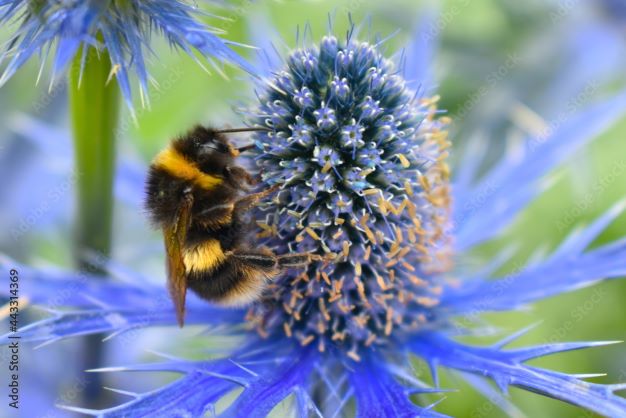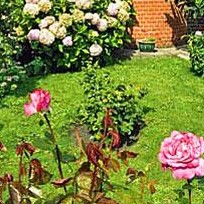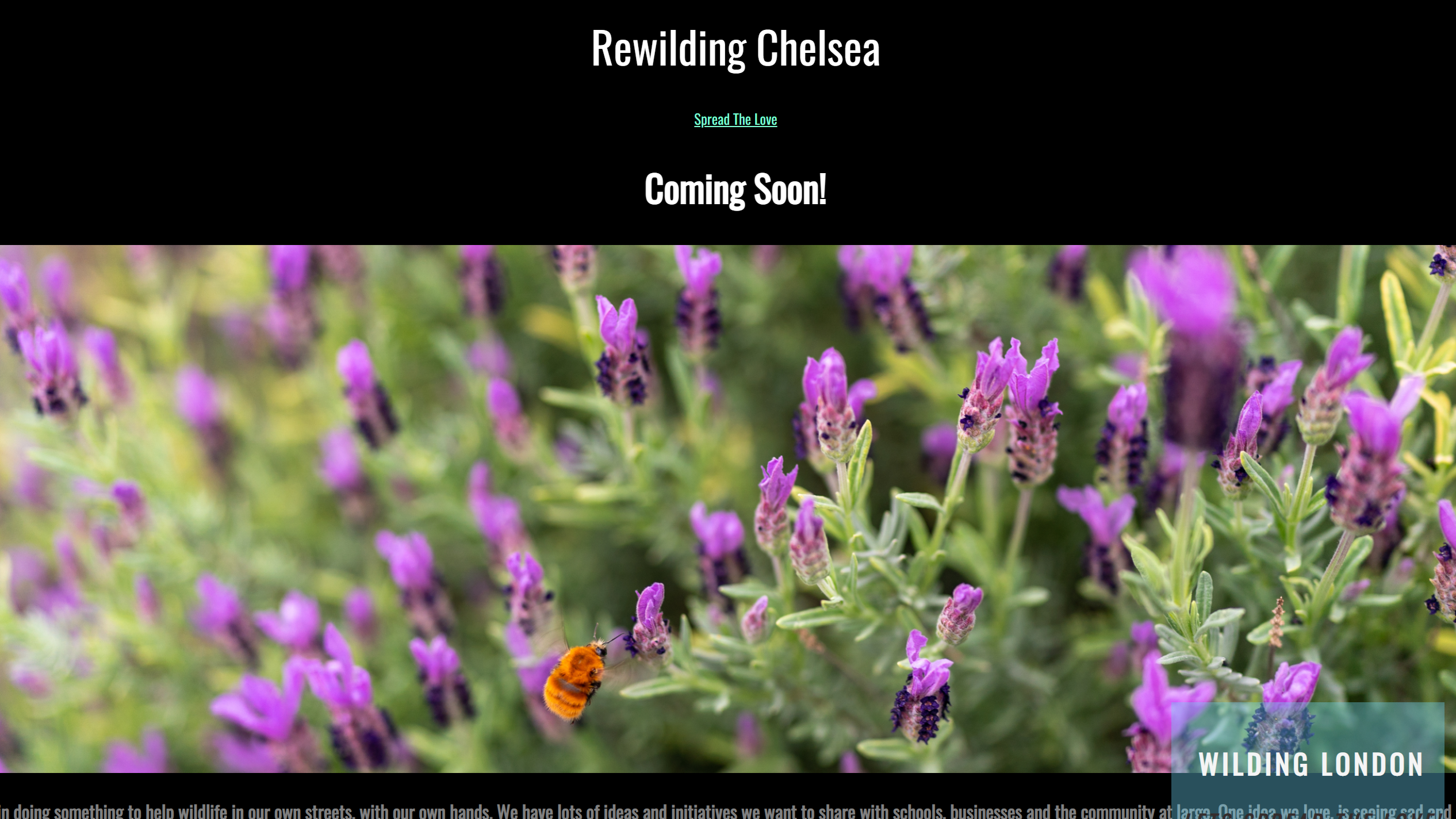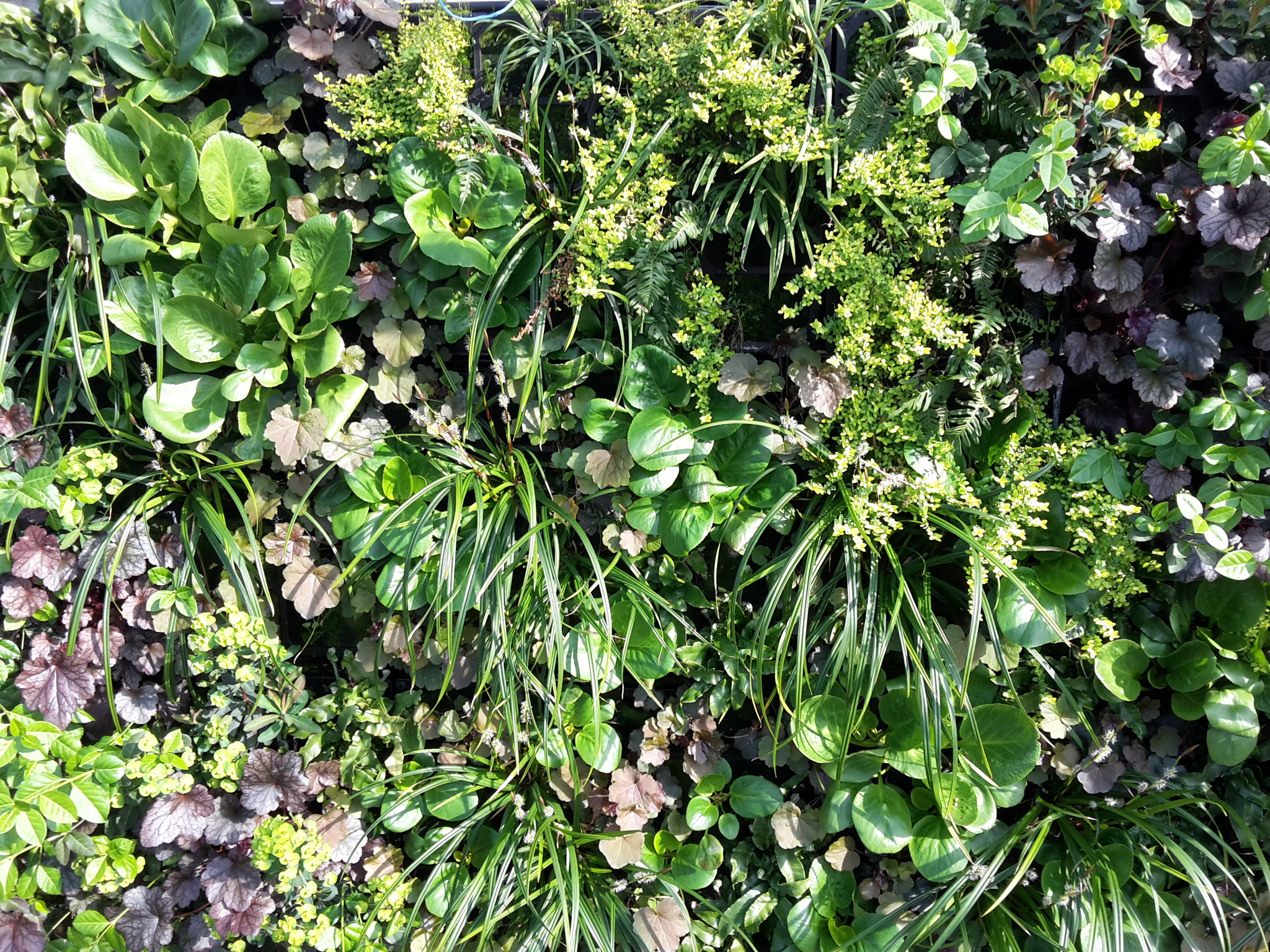posts
To Rake or Not To Rake
The Leaves!
November 7 2022
The experts say that it is good for the planet to let the leaves lie where they fall. It is said that compost at the base of a tree or a shrub, directly above its root zone where they return nutrients that the plant can then recycle and reuse next spring.
Eindhoven council in the Netherlands, says ‘Allowing autumn leaves in parks and gardens to decompose boosts insect and soil health’. They are encouraging their citizens to abandon the blowers and the rakes
Here are some of the pros and cons of raking autumn leaves:
A lawn needs sunlight even in the fall to store energy in its roots. A few scattered leaves on the lawn won't harm it. Rake leaves, compost them in a home compost pile or drop them off at a municipal "rake and take" program, offering leaves to people who want them for their own compost piles. Use them as mulch around perennials over the winter or till them into vegetable garden soil, assuming the leaves are not carrying any diseases. Leaves provide a home to bugs, from earthworms to salamanders and hedgehogs. There's an entire ecosystem living in there! The bugs living in these leaves are also a vital food source for birds.
Heavy layers of leaves left over winter, prevent sunlight from reaching grass, which can inhibit healthy growth, becoming wet and compacted, further damaging the lawn and creating a messy appearance. Raking them up in the fall, though, can reduce the diseases you encounter the following spring and summer. Fallen leaves often harbor disease, which can overwinter when the leaves are left on the ground. Raking leaves can create environmental issues. If leaves are removed from the garden and raked into the street, for example. The leaves may find their way into the gutters and into the streams and rivers where they release nitrogen and phosphorus encouraging algae growth. Excessive algae growth depletes the water of oxygen and kills fish and other aquatic life. My own take is that if you have a large garden, leave the beautiful carpets of leaves for as long as possible; (you do not have to remove them all) when it finally looks untidy, and you cannot tolerate the site of them anymore, by Jove then Rake!
Sources
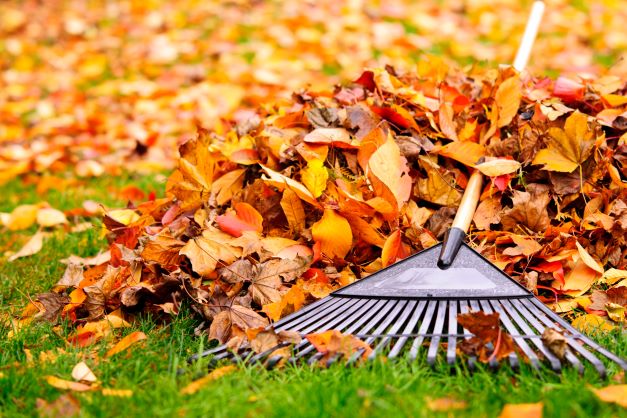
In Honour of Our Late Great Queen Elizabeth
September 17, 2022 by Sara Oliver
Explore Rewilding in News
When I visited Green Park to view the many beautiful and heartfelt tributes to our late HM The Queen, I was moved, and thought about the wonderful legacy the Queen left to our nation and the Commonwealth.
Indeed, it must be said that because of the Queen's love of trees, The Queen's Tree Cannopy was implemented to protect and plant trees for the Nation, and around the Commonwealth.
The Queen carried on a tradition at Buckingham Palace of planting trees in the gardens to commerate the Monarchy both past and present. It was started by George 3rd who planted mulberry trees in the garden, hoping to enjoy the fruits. Unfortuneatly, they did not bear fruit but the tradition of planting mulberry trees has remained. Queen Victoria and Albert planted a pair of fine Plane Trees, shading the lawns. The Queen, herself planted trees to commemerate each of her Children. What a fitting way to remember our Queen's love of nature by planting a special floral and wildlife habitat where planting trees may not be possible. A lovely example project to make your habitats come alive is outlined below. We would be delighted to create a Gallery for the tributes. Please send an image in jpeg form to hello@rewildingbelgravialondon.com.
Rewilding Belgravia London
Spread the Love!
- From small beginnings
- Our project is about spreading the love of nature, one small patch at a time!
- This means caring for our neighbourhood just as we care for our own homes
- Gardening helps create a healthy environment for both nature and humans
- And the bigger picture - I am still banging on about Bees, Birds, Bats and Butterflies read my latest Blog below:
Bees, Birds, Bats, Bugs, Butterflies
April 1, 2022 by Sara Oliver
I have been campaigning for the protection of our bees, bats, birds, bugs, butterflies, insects and remaining urban wildlife since 2008 and now I firmly back the rewilding initiatives of Rewilding Britain, in Belgravia and the surroundings of London.
Spring is a lovely time of year, the renewal and cycles of life commence. It is a busy time for 'pollinators' such as buzzing bees looking to pollinate flowers and bird nesting. Life cycle events have an enormous effect on the health of the ecosystem, for example bee activity needs to coincide with flowering, otherwise there is a risk of bees starving and plants that are unable to reproduce.
*'Phenology' is The study of these events and according to the latest study, there is an increasing risk of 'phenological mismatch', which means cohabiting specias are reacting differently to warming tempretaures and changing weather patterns.
Another example, Great Tits in the Netherlands have advanced egg laying in response to warming trends but the emergence of catapillars, their chicks feed on, have shifted significantly resulting in baby birds being unable to feed efficiently. Many migratory species are being affected by climate change, leading to 'mistimed migration' which may have disatrous consquences.
Currently there are no hard and fast solutions to these issues. *Read more about the study of Phenology here
We want to promote
- heightend awareness
- education
- holistic approach
- adaptation tactics
- better management of our environment and biodiversity
- care and respect for other species and the habitats which we all share
All these factors may help towards a long term solution and transform our relationship with nature.
- Rewilding Benefits
- Inspiration from Citizen Zoo, can be found news section.
- Reversing species declines
- By looking to the past to inspire future ecosystems, we can begin to proactively reintroduce lost species back into viable habitat, just like our Large Marsh Grasshopper and Water Vole reintroduction projects. In many instances, these missing species will have wider ecological benefits. A popular example of this is with beavers, whose damning behaviours create wetland habitats bursting with life.
- Helping fight against climate change
- Natural forest regeneration(vertical forests in cities), including grazing pressures from a functional mix of herbivores, will help to create a mosaic of forest and grassland habitats. This mix of habitats can store vast amounts of carbon.
- Improving our mental health and well-being
- Access to nature and its benefits for people’s mental health and well-being is well documented. By rewilding both rural and urban spaces, we can improve the accessibility of high-quality green spaces for people and wildlife.
Green Hoardings
Read more articles Bee Bus Shelters
Green Hoardings and screens - a forerunner to eco-vertical-forests
Read more - visit Living Hoardings website here ...
We advocate the greening of 'Greening up construction sites with PlantBox living hoardings'.
A Growing Revolution - Plant Box has ideas and communtiy initiatives to inspire, and reconnect with nature.
Read more - visit Growing Revolution website here ...
Rewilding
Discover Rewilding
Rewilding is a progressive and forward-thinking form of conversation that resets our relationship with nature, allowing people and the natural world to flourish side by side. ~ citizenzoo.org ~
Reintroducing Beavers
Reintroduction of Beavers In London
March 17, 2022
Rewilding Superstars
Beavers are being brought back to London for the first time in more than 400 years to help restore nature and river habitat and reduce flood risks.
A male and female beaver, both aged two, are being released into a specially designed enclosure in the grounds of Forty Hall Farm in Enfield. (Source:bbc.co.uk)
- Beavers introduced London
- Beavers introduced to Scotland and Wales
- Why have Beavers been reintroduced?
During the summer of 2017, beavers were introduced to fenced areas in Cornwall, to enhance wildlife habitats and help with cleaning water and frequent flooding. Beavers were released in Hatchmere Nature Reserve in 2020 as part of a five-year plan to restore valuable wetland systems.(7 Apr 2021)
Bee Bus Shelters
March 18, 2022 by Sara Oliver
When I put two separate questions obout a pilot scheme for vertical forests and bee bus shelters across Westminster, to the Panel at the recent Westminster Forum (Cleaner Environment), both questions were brought into the arena. It was mentioned that the Council will consider anything to see what works for Westminster. They also said, what might work elsewhere may not necessarily work for Westminster. We wait with baited breath - will they, won't they materialise these opportunities? However, on a more positive note, we understand Grosvenor will be trialling a bee bus shelter at Eaton Square. We look forward to seeing this new initiative and hope that it will be a great success for nature
and the local environment.
About
Back to top
Renaissance - Brighter London for Nature
25th June 2022 by Sara Oliver
We are currently in the 5th phase according to scientific research, mainly caused by human interference and as a result, climate fluctuations and interruptions of flora and fauna productivity and activity are at risk. What to do? Well, every little bit of inspiration helps.
In London, more wildlife corridors are needed to help restore the lost habitats of insects and wildlife, by human intervention, so that they can safely reach one oasis, square or park to the other. It is vital to connect these areas so that species have pitstops, bug hotels and habitats to rest, feed and refuel for their onward journey.
We are calling on all businesses, communities, hotels, restaurants, offices and residents of London, with balconies, gardens and outside spaces, no matter how small, to plant meadow seeds for pollination and add vibrance to our city. Also, not only are we doing our best to give nature a chance to revive and positively thrive in the future, but we will also be doing ourselves a favour too, by increasing a positive outlook and mental clarity and helping to uplift and brighten London.
If you are interested in how to find ways to Wilden your area, then get in touch with us or visit our website for inspiration and resources to help you get started. Start your own rewilding group and spread the love by planting meadow seedlings in dull and neglected areas and identifying potential habitats for wildlife. Join the wilding movement and make a difference.
We like to plant with seedball.co.uk and use Nature Ark and The Cube (Bioscopes – contact us to find out more about identifying and planting habitats for wildlife).
hello [@] rewildingbelgravialondon.com
 Source: Westminster College
Source: Westminster College
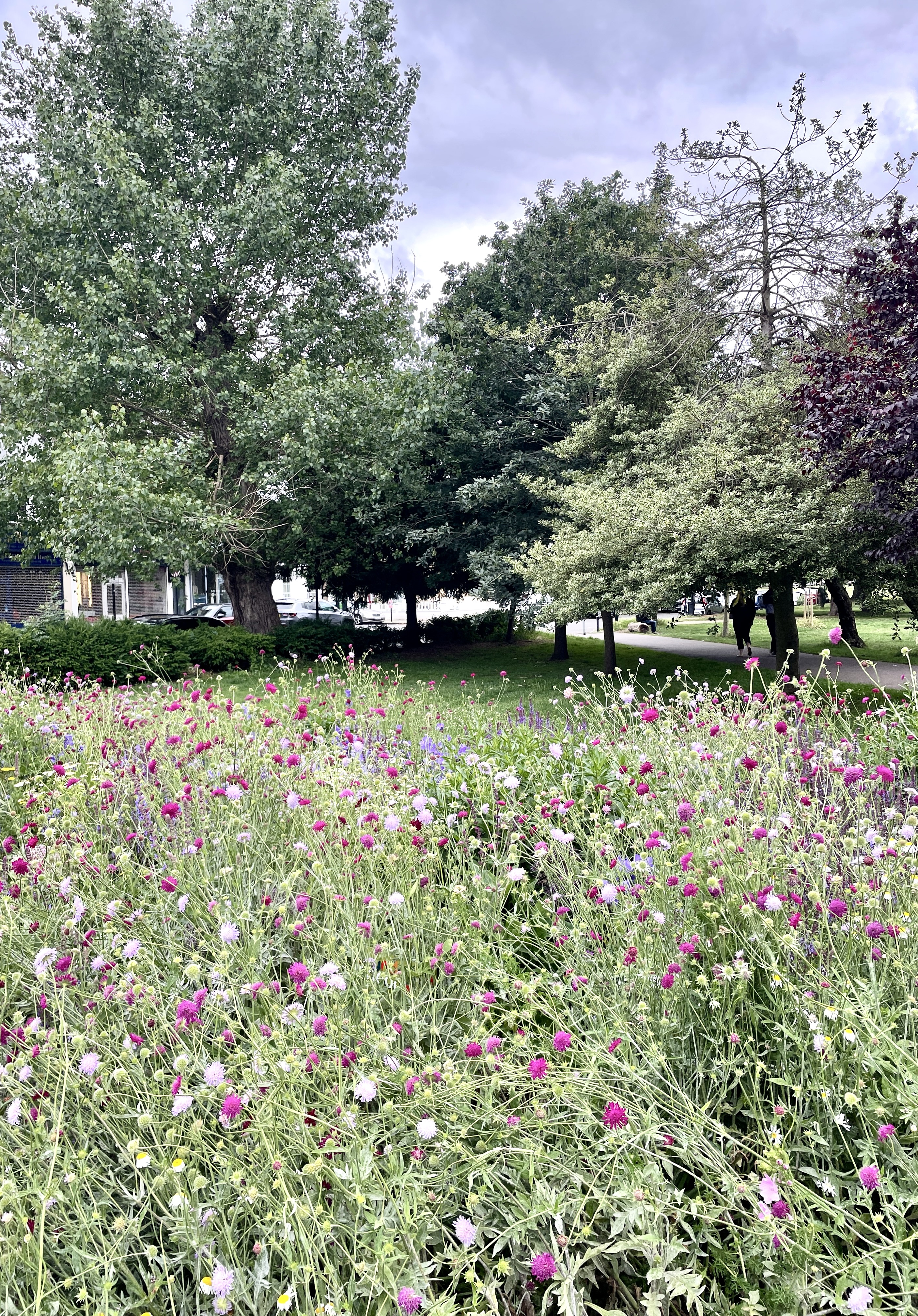 Source: Westminster College
Source: Westminster College
About
Back to top
Bug Hotel in Berkeley Square
23rd June 2022
Ruth Beddow, Principal Officer for Innovation and Change at WCC, wanted to share with us what happened in Berkely Square yesterday. "A fabulous new Bug Hotel was installed by Westminster College students and our contractor, Continental Landscapes. Hope you get chance to take a look!" Thank you so much for sharing this wonderful initiative In Mayfair. Perhaps we will see the return of the 'Nightingales Sang In Berkeley Square...'
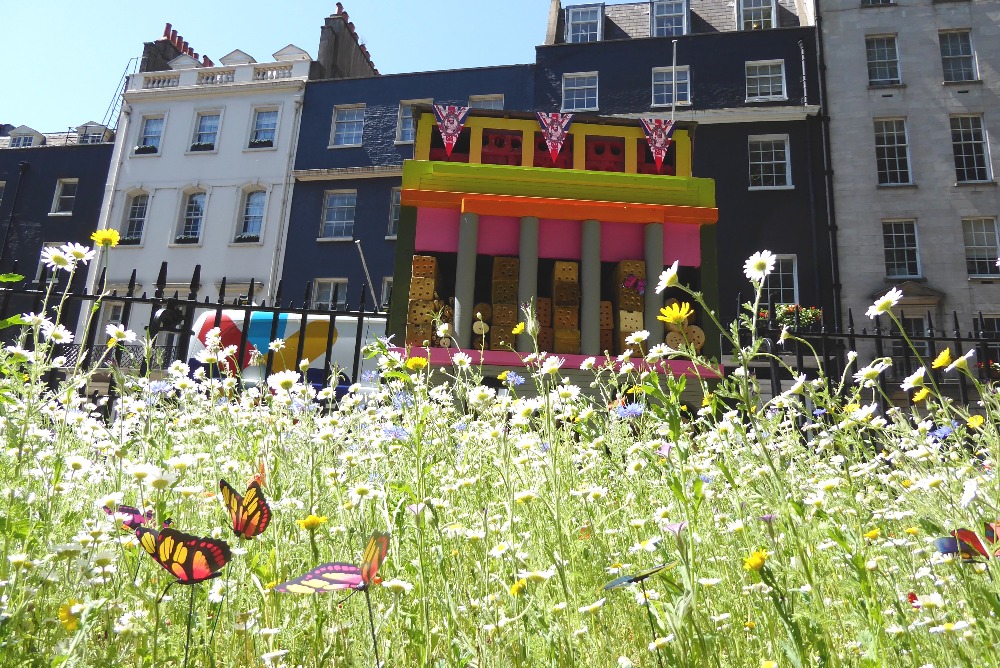 Source: Westminster College
Source: Westminster College
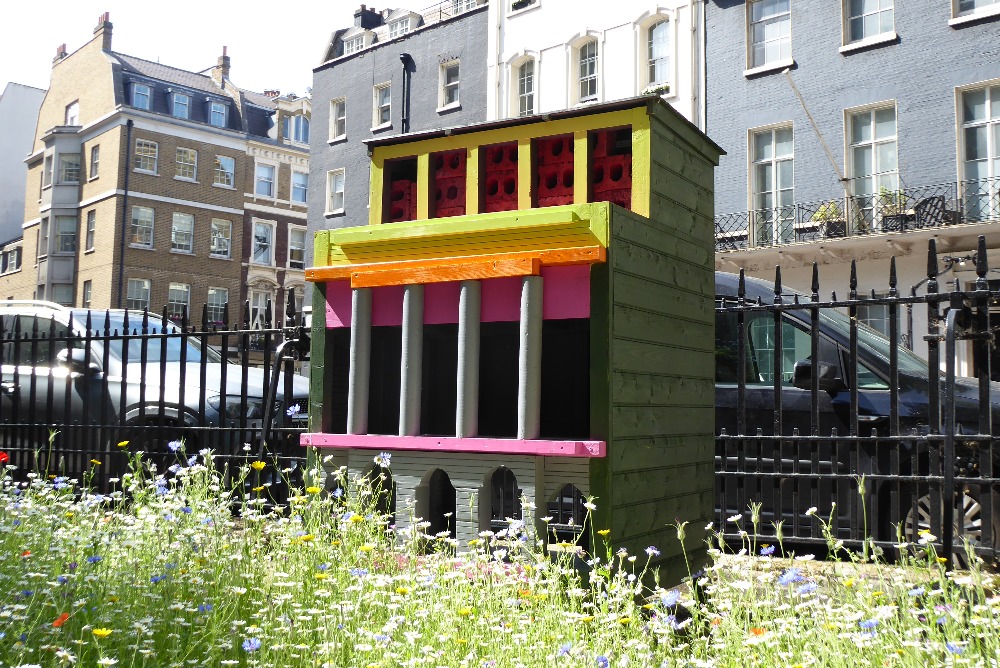 Source: Westminster College
Source: Westminster College

